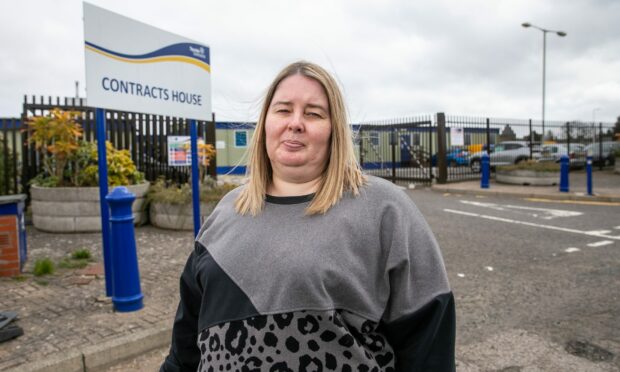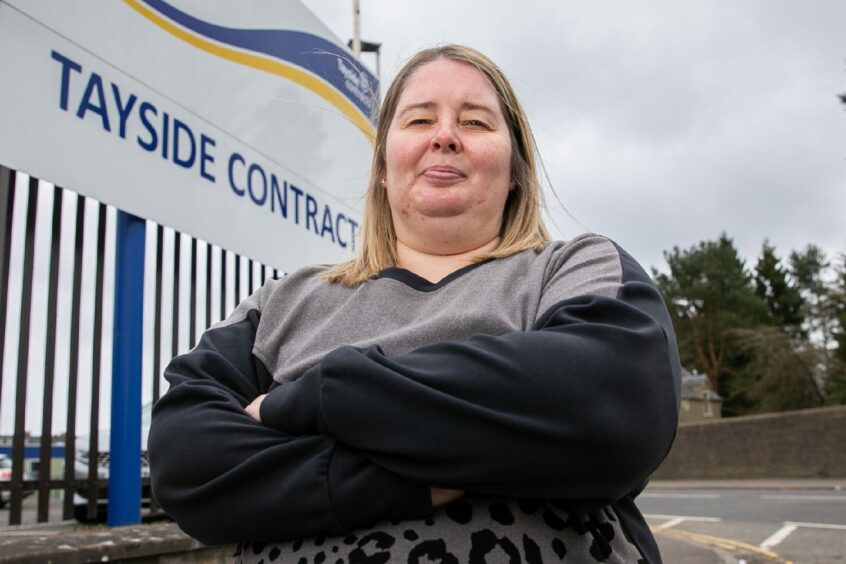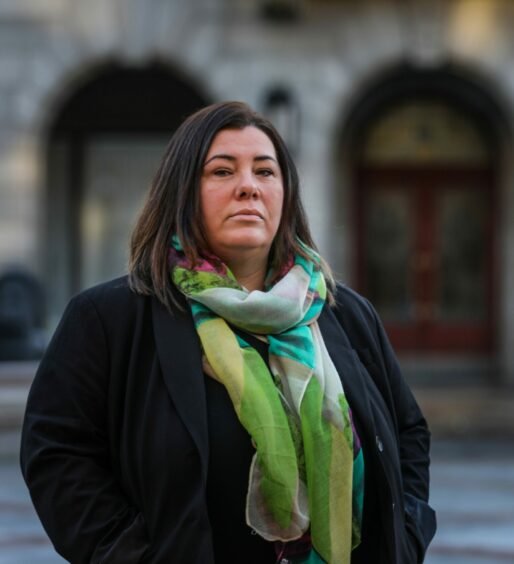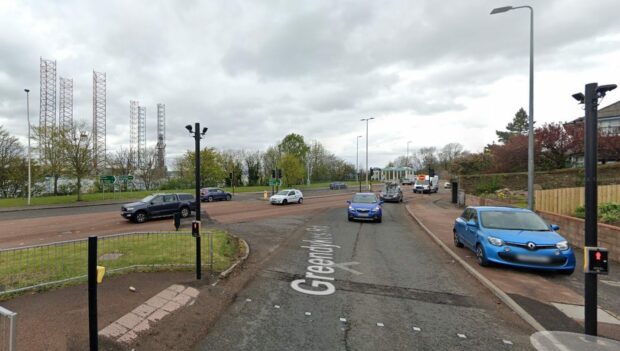Public sector workers in Dundee face going from the “front-line to the bread-line”, if wages are not increased urgently, it has been warned.
More than 200 employees of Dundee City Council and Tayside Contracts say they are suffering mental health issues due to financial stress.
Others are using foodbanks and borrowing money from friends and family to make ends meet.
The findings, from a new survey by GMB, comes as the union fights for more than the proposed 2% pay increase and an ongoing gender pay discrimination row.
A total of 297 workers at the council and Tayside Contracts – the local authority contracting organisation – responded to the survey.
Daily struggle
One Dundee-based Tayside Contracts worker has gone public with her own daily struggle to make ends meet.
Steph Smith, 48, is an assistant cook with Tayside Contracts but is currently working in an office-based role for the same organisation.
GMB organiser Steph says: “I work a 30-hour week and am currently the main breadwinner in my home.
“Every week is a struggle. My rent alone is £370 a month while my gas and electricty costs have just doubled, going up from £400 each per year to almost £900 each.
“The council tax has also gone up so there is very little left over for many basics, never mind luxuries.”
Steph says she has reduced her shopping bills, looking for cheapest options on every day necessities such as bread.
She added: “I also now sit with a quilt because I can’t afford to turn on the heating.”
‘Undervalued’
The results of GMB’s survey show:
- 35 workers used a foodbank
- 42 have turned to payday lenders
- 177 have borrowed from family and friends
- 143 suffer mental health issues due to financial stress
- 238 feel undervalued by their employers
Catastrophe for low paid staff
A 2% pay rise has been offered by the Convention of Scottish Local Authorities (Cosla) but campaigners say this is not enough.
GMB also argue the cost of living crisis is hitting female employees harder because it is combined with allegedly discriminatory pay policies.
More than 800 women have lodged equal pay claims against the council.
GMB Scotland organiser Helen Meldrum said: “This crisis could turn into a catastrophe for the lowest paid staff unless council bosses bring forward a significantly improved offer that confronts inflation.
“But it’s double jeopardy for working women in the council and its arms-length organisations – staff like home carers and school support staff have been and continue to be denied the equal pay they desperately need.
“The real prospect of key workers, the people who we all depend on, going from the frontline of public service delivery to below the breadline is utterly appalling.”
A spokesman for Tayside Contracts said the company asked GMB for survey results but these were not provided.
He added: “The GMB’s statement is very general and describes a situation which may be faced by thousands of people across the country due to cost of living increases.
“Tayside Contracts has enquired of the GMB whether there is any more that we can do to assist our employees who may be experiencing financial hardship and associated mental health issues. We await their response.
“Tayside Contracts is wholly committed to supporting employees who experience financial hardship and we are also in the process of rolling out a large-scale initiative to provide extensive training to all of our 2,500 employees to help them avoid or cope with mental health issues.”
Equal pay
Both Tayside Contracts and Dundee City Council said they are tied to national pay offers.
On the equal pay claims, Tayside Contracts said: “A recent independent equal pay audit concluded that there was no pay inequality within Tayside Contracts.”
A council spokesperson said: “Pay for local government workers is negotiated nationally in Scotland through Cosla.
“A number of equal pay claims have been raised against Dundee City Council in the employment tribunal.
“These cases are at an early stage and it would not be appropriate for the council to comment further in the meantime.”












